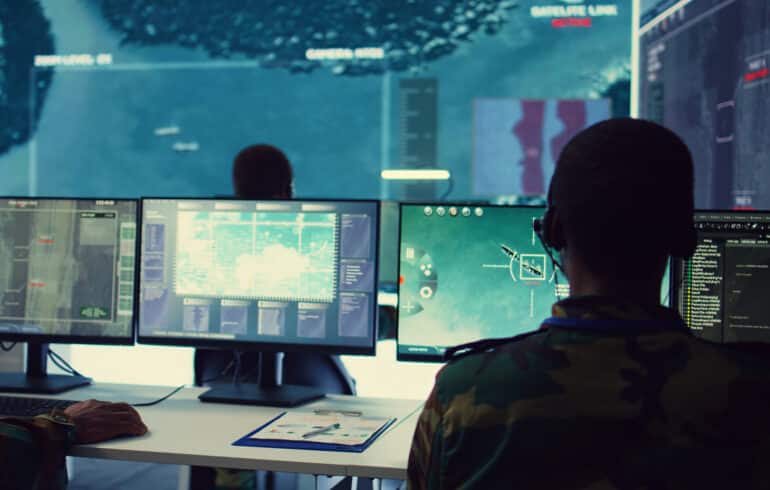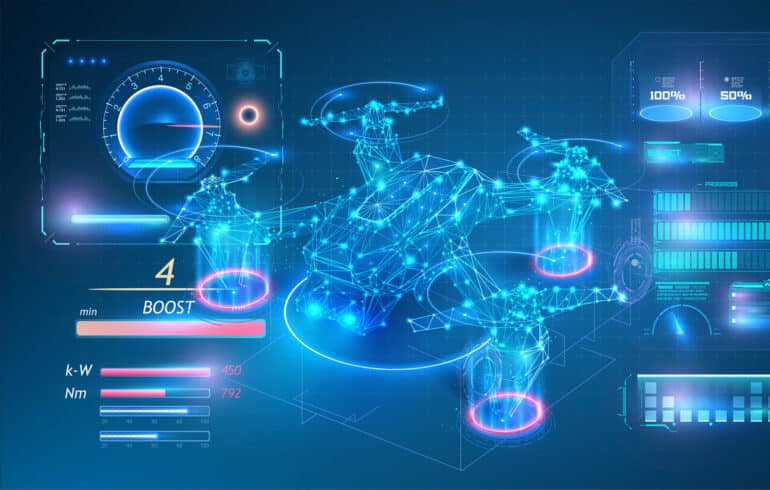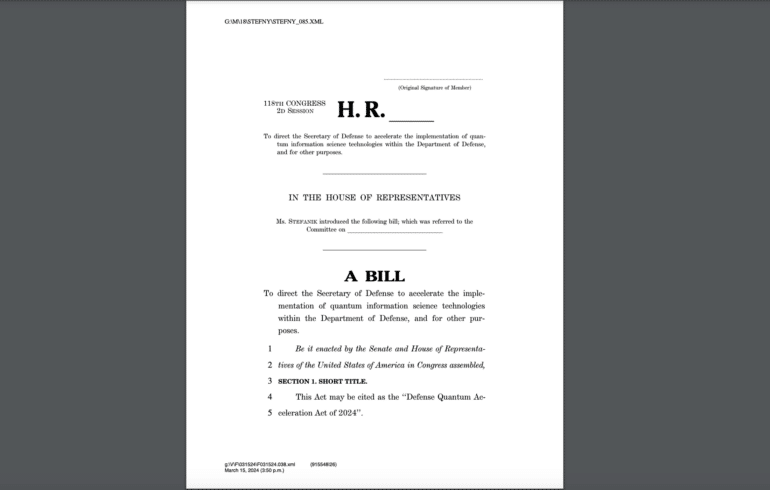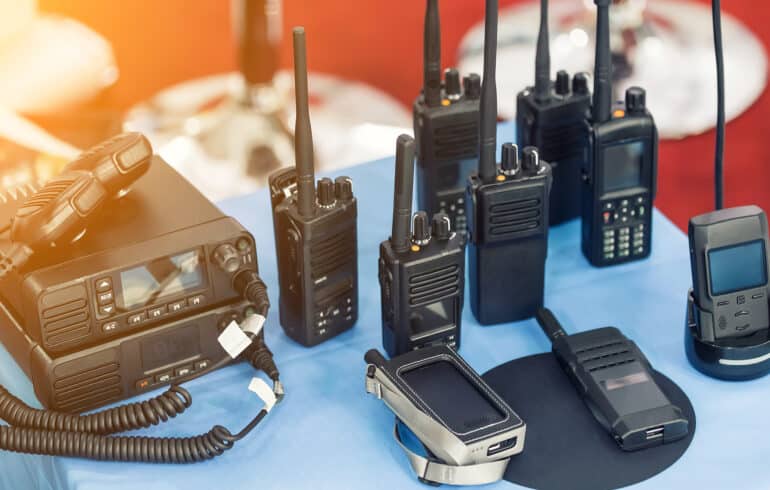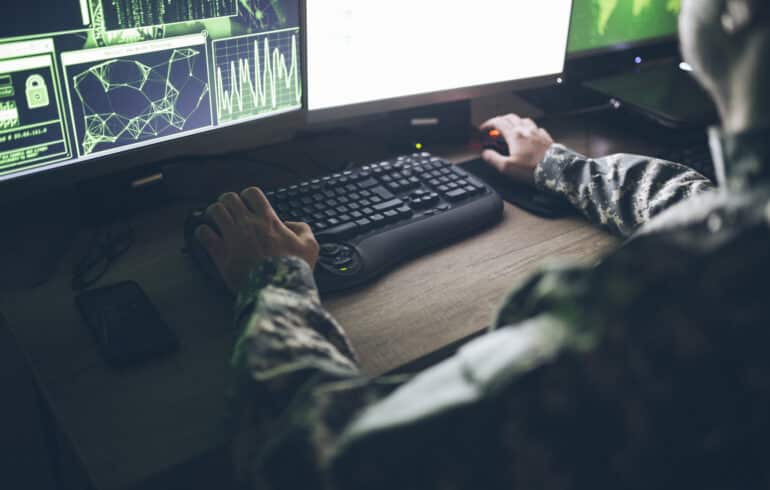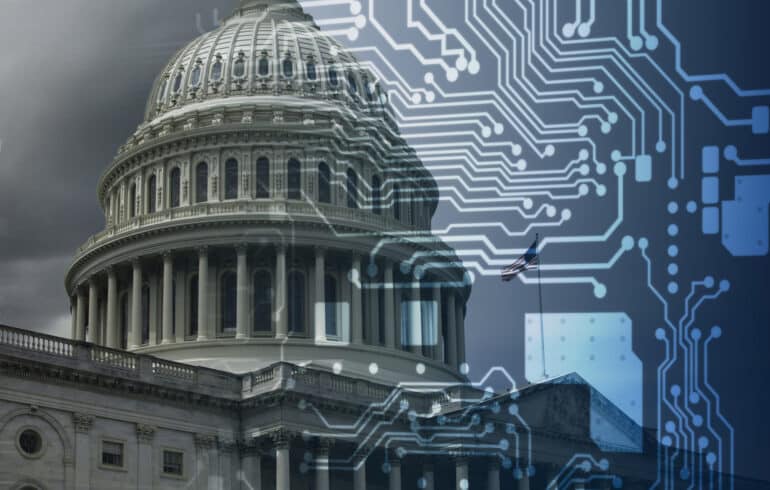Government & Defense - Quantum Technology, Quantum Computing, Quantum Security Articles
August 30, 2024
Quantum Technology Use Cases in Government & Defense
Quantum computing is on the cusp of reshaping government and defense, much as radar or the internet did in earlier eras. It promises enhancements across the board – unbreakable communications, unprecedented computing power for logistics and AI, new sensors that reveal hidden threats, and simulations that accelerate innovation. It also carries profound disruptive potential, especially for cybersecurity, meaning it can just as easily undermine a nation that is unprepared ...
Q-Day Isn’t an Outage – It’s a Confidence Crisis
Cybersecurity lore often paints Q-Day (the moment a quantum computer cracks RSA/ECC encryption) as an instant "Quantum Apocalypse" where every system gets hacked immediately. Planes falling from the sky, banks drained in seconds, an overnight digital Armageddon - if that nightmare doesn’t happen, some assume Q-Day wasn’t so bad after all. But this view misses a crucial point. The real catastrophe of Q-Day isn’t that everything will crash at once - it’s that our confidence in all things digital will collapse in an instant. In reality, when quantum code-breaking arrives, nothing visibly “breaks” on day one - websites still load, bank apps still work - yet one of the fundamental ...
Quantum Sensing and AI for Drone and Nano-Drone Detection
Quantum sensing technologies are emerging as powerful tools to detect and track UASs, including small and nano-drones that often evade conventional sensors. These quantum sensors, such as quantum radars, quantum LiDARs, atomic magnetometers, and Rydberg RF detectors, exploit phenomena like entanglement, squeezing, and extreme sensitivity of quantum states to reveal faint drone signatures beyond classical limits. However, raw data from both quantum and classical sensors can be weak, noisy, or ambiguous, especially when dealing with tiny drones with low radar cross-sections (~0.01 m²) and minimal emissions. This is where artificial intelligence (AI) becomes indispensable. Modern AI algorithms (deep neural networks, signal classifiers, data fusion models, etc.) play a critical role ...
Physics at the Heart of the New Cold War
In the 21st century, cutting-edge physics has moved from the laboratory into the realm of high geopolitics. Breakthroughs in quantum computing, advanced materials, and energy aren’t just academic - they are strategic assets coveted by nations. The situation echoes the mid-20th century, when projects like the Manhattan Project turned abstract physics into world-altering power. Today, governments are pouring billions into quantum technology and other physics-driven fields, believing that whoever leads in physics may lead the world. From quantum encryption to fusion energy, physics has become core to economic competitiveness, military strength, and diplomatic leverage. This article explores how emerging domains - from room-temperature superconductors to photonics and metamaterials - are ...
New Legislation to Boost U.S. DoD Quantum Capabilities
A recent bill introduced by United States' Republican lawmakers aims to accelerate the Defense Department's development and integration of quantum technologies, enhancing capabilities in areas like navigation, sensing, and artificial intelligence. The Defense Quantum Acceleration Act, championed by Rep. Elise Stefanik and Sen. Marsha Blackburn, proposes the creation of a quantum advisor role and a center of excellence within the Defense Department as well as increase the funding for quantum information sciences. This move is in response to growing global competition in quantum technologies, particularly from China, which significantly outpaces the U.S. in quantum investments. The bill seeks to foster quicker innovation through increased collaboration with private sectors and academia ...
NATO publishes first Quantum Technologies Strategy, pledging a “quantum-ready” Alliance and a shift to quantum-safe crypto
NATO has released a public summary of its first Quantum Technologies Strategy, signalling that the Alliance now treats quantum as more than a long-term science project: it’s a near-term driver of military advantage, a cybersecurity risk, and a locus of strategic competition. The 5‑minute official text (dated 16 January 2024) frames quantum technologies as potentially transformative across sensing, imaging, positioning/navigation/timing (PNT), communications, and computing - while warning that the same breakthroughs could undermine NATO’s ability to deter and defend if adversaries get there first. At the center is a clear political message: NATO wants to become “quantum-ready.” In NATO’s telling, that means building a secure and resilient transatlantic quantum ecosystem, ...
Law Enforcement in the Quantum Computing Era
Law enforcement agencies occupy a unique position in the context of the quantum threat. They are both protectors of society’s security and heavy users of sensitive information systems, which makes them especially exposed if those systems are compromised. Here’s why law enforcement is special: Highly Sensitive Data: Police and investigative agencies handle data that could be devastating if leaked – witness identities, undercover operations, criminal intelligence, evidence files, and even personal data of citizens. Such information often needs to remain confidential for decades. If criminal groups or hostile actors use a quantum computer to decrypt law enforcement databases or communications, it could endanger lives and undermine ongoing investigations. Unfortunately, the ...
Quantum LiDAR vs. Quantum Radar
Quantum radar and quantum LiDAR are no longer science fiction – they are emerging reality, albeit in early stages. They differ in technology and likely timelines: expect to hear more about quantum LiDAR in commercial products soon, while quantum radar will continue to be a strategic project for defense and require further breakthroughs to reach its full promise. Both, however, underscore the transformative power of quantum technology. As these sensors evolve, they could redefine how we perceive the world, achieving what was once thought impossible – like spotting the “invisible” stealth plane, or navigating a pitch-black, foggy road with the same confidence as a clear day ...
Quantum Readiness for Mission-Critical Communications (MCC)
Mission-critical communications (MCC) networks are the specialized communication systems used by “blue light” emergency and disaster response services (police, fire, EMS), military units, utilities, and other critical operators to relay vital information when lives or infrastructure are at stake. These networks prioritize reliability, availability, and resilience – they must remain operational even during disasters or infrastructure outages. For example, in a hurricane that knocks out commercial cell towers and power, robust MCC networks are expected to “rise above” the chaos and keep first responders connected. Communications security is equally paramount: in crisis scenarios, sensitive information (tactical plans, personal data, etc.) must be protected from interception or tampering, even as the ...
Quantum Radar: The Next Frontier of Stealth Detection and Beyond
Quantum radar is an emerging technology that applies the mind-bending principles of quantum mechanics to the field of radar sensing. In theory, it promises detection capabilities beyond the reach of conventional radar, potentially piercing the invisibility of stealth aircraft and opening new possibilities in sensing. From its conceptual origins in quantum physics labs to recent experimental prototypes, quantum radar has become a hot topic in defense tech circles and beyond. In this article, we explore what quantum radar is, how it works, its development history, key experiments, applications in military and civilian domains, its current status and challenges, comparisons with classical radar, the security implications of its adoption, the role ...
Quantum Computing Cybersecurity Preparedness Act
On December 21, 2022, President Joe Biden officially signed H.R.7535, known as the Quantum Computing Cybersecurity Preparedness Act, into law. This legislation urges federal agencies to upgrade their technologies to defend against potential quantum computing threats. The act is a crucial step in the United States' strategy to enhance its cybersecurity infrastructure in anticipation of advancements in quantum computing, which poses a serious risk to current cryptographic standards. The law mandates that federal agencies begin transitioning their systems to post-quantum cryptography, which is designed to be secure against both quantum computers and traditional computational threats. This move is part of a broader effort outlined in several key initiatives throughout the ...
